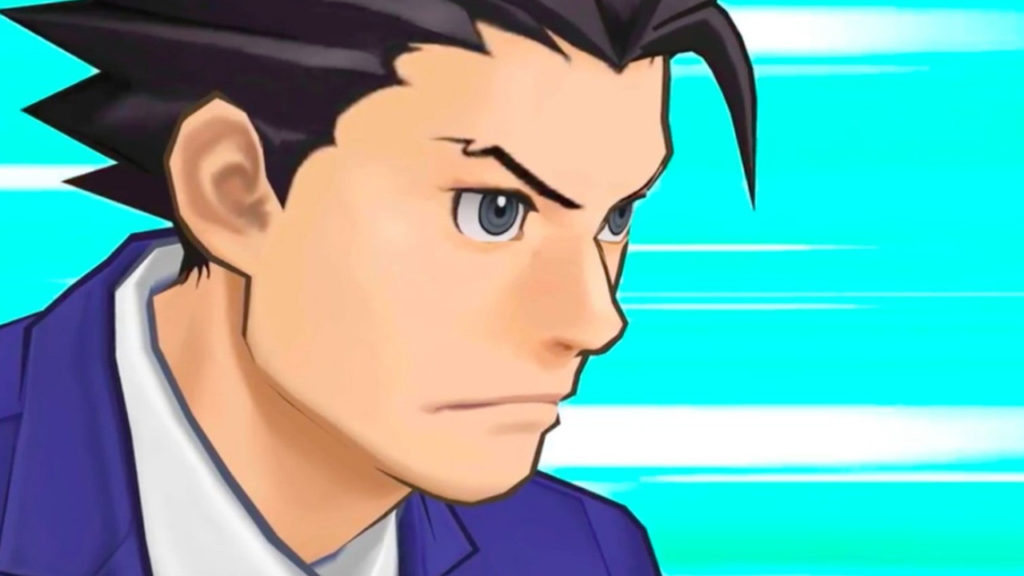17 years since the first game came out in Japan, it’s something of an institution in and of itself. And while it’s fun for its ridiculous turns of events and its brain-teasing, there’s another skill that players gain without realizing it: the ability to protect themselves against gaslighting.
On Gaslighting
Before we delve too far, a word on “gaslighting.” It’s a term we’re hearing more and more, and a very real phenomenon. Basically, it’s when one person manipulates another person’s understanding of reality in order to keep them destabilized and make them question their own sanity. Making them believe conversations didn’t happen when they did (or vice-versa), for example. The term comes from the 1944 film Gaslight, in which a man works away at his wife bit by bit to convince her she is going insane.
Gaslighting is not simple disagreement, being told something we don’t want to hear.
Nor is it two people genuinely remembering an incident differently. It is also not just lying. Lying is, well, lying. And it’s also bad. And it also needs to be taken care of. But that’s a whole different set of circumstances.
When someone gaslights you, the desired end result is to create instability and uncertainty – to make you question your own actions so that you are easier to manipulate. And, as a sad result, it is not always a deliberate move. In many cases, it can be subconscious. That doesn’t make it all right. But it’s always worth noting whether you’re dealing with someone on the attack.
There are several things that need doing in the case of this treatment. But the first is re-establishing your own sanity and memory for yourself.

On Ace Attorney
In the world of Ace Attorney, you play as (for most of the games) Phoenix Wright: a defense attorney who, while not completely up on how the legal system works, has a knack for lateral thinking. He tends to be stuck defending people with means, motive, and the victim’s blood all over them. But by the end of each case – in all but a few instances – he has not only cleared his client’s name, but discovered the true culprit during the trial.
The game’s legal system is, incidentally, kind of a joke.
Prosecutors hold all the power and can go undefeated for decades. Juries are a thing of the past, defendants are considered guilty until proven innocent, and it’s up to the defense attorney to clear their client’s name in three days Or Else. But the ludicrous nature of the game’s legal system wasn’t dreamed up as a challenge.
Game creator Sho Takumi used the Ace Attorney series as a way to level a hot take against Japan’s post-War court system. While things improved after World War II, much of what we see in the game has its roots in truth. For example, there really are cases of Japanese prosecutors going undefeated for as long as 40 years!
While the satire may be lost on Western audiences, the skill set it breeds in us is not.
The game progresses in such a way that we’re never missing anything we need to complete a case, and simply turning a situation on its head (the “turnabout” of the game’s title and individual episodes) is what saves the day.
And for people questioning their sanity in certain situations, that “turnabout” mindset can be a literal lifesaver.

The Psychological Turnabout
It would be unfair to say that the techniques used in Ace Attorney have never been used anywhere else: they are a mainstay of deep, well-written detective fiction. But the opportunity to exercise it is what comes in handy.
How does a “turnabout” work? Simply by changing the way a situation is viewed – turning it on its head. Say that you’ve got just about all the proof you need that a suspect is guilty. The only thing in your way is an alibi. They were somewhere else at the time, even though all the evidence points to them. There is no way they could be in two places at once.
The “turnabout” is to say: “The only way this works is if the person was in two places at once.Therefore, that must be what happened. How could that have been achieved?” (Spoiler: the answer tends to be twins.)
Now, you’re unlikely to find that particular situation in your day-to-day life. At least, I hope that’s not something you’re encountering. But the process remains true, even for more mundane things. And when you find yourself cornered by someone who is attempting to call your sanity into question, it can be a powerful touchstone.
That touchstone, incidentally, is for you. Not the person gaslighting you. While it seems like it might be glorious to call a person out and prove them wrong, that is not what this exercise is. (Unless you really are in court, and then you might need a real attorney’s backup!) These are moments for you, to keep a grip on your memories and what you know to be true, and to keep the gaslighting from working.
The person calling your sanity into question has one view of the situation that they will present to you; but you can always turn it on its head, and remain secure in what you know to be true. It’s hard – gaslighting in its true form is terrifying and makes you question how much of your world is real. But give yourself credit, believe in what you know to be true, and be ready to turn the situation on its head – just like our favorite spiky-haired lawyer – and there’s hope.


Comments are closed.